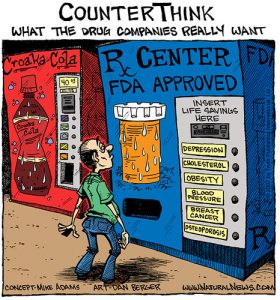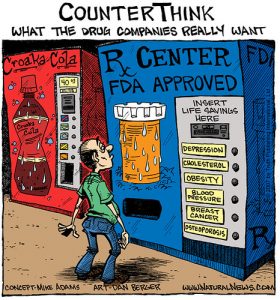I started telling people I was going to law school just about one year ago. One of the first questions everybody asked was whether I was going into IP law. I had been working in software development for several years, so the assumption made sense given my technology background. I had other plans though.
Law school was an opportunity for a career change. I was interested in public interest – perhaps some kind of consumer advocacy like Senator Warren or doing something with public health. Jump ahead to this summer and I’m interning with IP lawyers and talking about patents every day.
Have I really abandoned my public interest track so quickly? Not at all.
Taking a Chance on My First Elective
I got to pick my first elective during my second semester at Loyola. I chose Global Access to Medicine: A Patent Perspective because – from the name – it was focused on helping people gain access to medicine. I had heard all about high drug prices in the news. Since everyone buys drugs at some point, this seemed to fit with my interests in consumer law and public health.
That excitement came with some wariness though. Why was it a patent perspective and not a public health perspective? On the first day of class, weariness turned into dread. I was the only person who took the class primarily for public health interest; everyone else took it only because of an IP interest.
Learning I Was Wrong
I was wrong to worry.
I quickly learned that IP is not some meaningless topic unconnected to medicine. Instead, it can be the key issue that either gives people access to or bars them from medicine. Drugs – from pain relievers to HIV medications – are eligible to be patented (with different countries having different eligibility requirements), meaning the drug company gets rights to exclude all others from making and selling that drug. As the sole seller, drug companies can charge a high price – or even decide not to sell the drug in a particular country. Price can be a huge barrier in the way of getting access to life-saving medication.

Diving in Deeper
I knew after just a couple of weeks that one semester on this wasn’t going to be enough. I wanted to learn more and get involved with the access to medicine community. What better way to do so than the summer? So as a millennial does, I googled exactly what I was thinking – access to medicine legal summer internship.
First thing to pop up was for an internship at Public Citizen. They’re a non-profit that does policy research and advocacy for all sorts of consumer issues, including access to medicine. I was excited that the internship description seemed to build off everything I learned in class. I’d get to research policies, work with experts, and help advocate for change. I submitted a short application and writing sample; a few weeks later, I got the position.
IP Is One Piece of Access to Medicine
To be clear, I’m not only working on IP issues this summer. Access to medicine is fascinating work in part because of how IP intersects with many different areas, ranging from contracts to antitrust law.
One such intersection is with international law and “free trade” agreements. Countries often come together and sign agreements between countries, commonly known as free trade agreements (FTAs). The idea is that they’re supposed to help free trade by lowering tariffs and opening countries’ markets to one another. However, FTAs often include non-economic provisions, like promising to create IP laws that give more rights and protections to patent holders. Although every country as a sovereign nation has the right to pass its own laws – including on IP – FTAs can effectively prohibit countries from having (or not having) certain laws.
IP laws dictated by FTAs can create barriers to a country’s access to medicine. Where a country’s law might have prevented a patent from being granted for a particular drug before an FTA, those required provisions might mean the drug now gets a patent (and with that patent comes higher prices). Right now, the U.S. and Kenya are preparing to negotiate an FTA. Although a draft hasn’t been released yet, there are already signs the FTA will require Kenya to pass stricter IP laws. This would make it even more difficult to get affordable medicine in Kenya.
In Progress: Learning More with an Eye Towards the Future
Researching this U.S.-Kenya FTA is only one part of my summer. My research this summer has plenty of IP issues, but there are many consumer, antitrust, and international law issues that keep me engaged and excited to learn more. A year ago, I never would have guessed that access to medicine work requires so much IP knowledge, let alone that I’d be so interested in it. I can’t wait to keep immersing myself deeper in the access to medicine world and learning more.

Scott Hulver
he/they
Assistant Blogger
Loyola University Chicago School of Law, J.D. 2022
